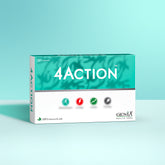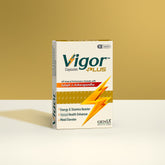Erectile Dysfunction: Causes and Treatment
As a middle-aged man, are you able to run at the same speed you did at 25? Can you hit a cricket ball as far as you once did? Are you capable of striking a tennis ball with the same velocity and spin?
Most likely, the answer is no.
However, despite the effects of aging, there are numerous opportunities to remain active and find enjoyment in both sports and intimate relationships.
What is Erectile Disfunction?
Erectile dysfunction, commonly referred to as ED, is the inability to achieve or maintain an erection that is adequate for fulfilling intimate activity. This condition occurs when the male organ fails to become sufficiently rigid at least 25% of the time, or when it does become firm but loses its rigidity prematurely.
What causes Erectile Dysfunction?
Erectile dysfunction may arise from a variety of factors. In some cases, it can be attributed to the side effects of certain medications. Additionally, stress from work, issues within a relationship, or depression can also play a significant role in the development of ED.
However, for approximately 75% of men, the underlying causes are more intricate. Erectile dysfunction (ED) can stem from various factors, including vascular disorders, neurological conditions, diabetes, or treatments and surgeries related to the prostate.
Frequently, the primary factor contributing to ED is inadequate blood flow to the male organ due to blocked arteries (atherosclerosis). Notably, in as many as 30% of men who consult their physicians regarding ED, this condition serves as the initial indication of underlying cardiovascular disease.
Erectile Dysfunction Self-Care: 6 Practical Tips to Implement Today
Whether you are currently experiencing erectile dysfunction (ED) or wish to prevent it, consider these strategies to enhance your health and improve your intimate activity with your partner.
1. Engage in regular walking. A study conducted by Harvard revealed that walking for just 30 minutes each day is associated with a 41% reduction in the risk of developing ED. Additional research indicates that moderate physical activity can aid in restoring intimate function in middle-aged men with obesity who are affected by ED.
2. Adopt a healthy diet. Findings from the Massachusetts Male Aging Study suggest that consuming a diet abundant in natural foods—such as fruits, vegetables, whole grains, and fish—while minimizing the intake of red and processed meats as well as refined grains, can lower the chances of experiencing ED.
3. Prioritize your vascular health. Conditions such as high blood pressure, elevated blood sugar, high cholesterol, and increased triglycerides can harm the arteries in the heart, potentially leading to heart attacks, affect the brain, resulting in strokes, and impact the male organ, causing erectile dysfunction (ED). Additionally, an expanding waistline can exacerbate these issues. Consult your physician to assess the condition of your vascular system, which influences the health of your heart, brain, and male organ, and determine if lifestyle modifications or medications are necessary for improvement.
4. Maintaining a healthy size is crucial, so aim to achieve and sustain a slim physique. A narrower waistline serves as an effective preventive measure; for instance, men with a 42-inch waist are 50% more likely to experience ED compared to those with a 32-inch waist. Weight loss can significantly alleviate erectile dysfunction, making it essential to reach and maintain a healthy weight as a strategy to prevent or address ED. Obesity increases the likelihood of vascular diseases and diabetes, both of which are significant contributors to ED. Furthermore, excess body fat can disrupt various hormones that may also play a role in this condition.
5. Engage your muscles, specifically those of the pelvic floor. Strengthening these muscles can improve rigidity during erections and help retain blood in the male organ by compressing a crucial vein. A study conducted in the UK demonstrated that a regimen of Kegel exercises performed twice daily for three months, along with biofeedback and guidance on lifestyle changes—such as quitting smoking, losing weight, and reducing alcohol intake—proved to be significantly more effective than lifestyle advice alone.
6. Adding dietary supplements into your daily regimen may prove beneficial in tackling issues related to erectile dysfunction. These supplements can provide essential nutrients and compounds that support overall physical health for intimacy, potentially improving blood flow and enhancing libido. It is advisable to consult with a healthcare professional before starting any supplement to ensure it aligns with your individual health needs and conditions.






